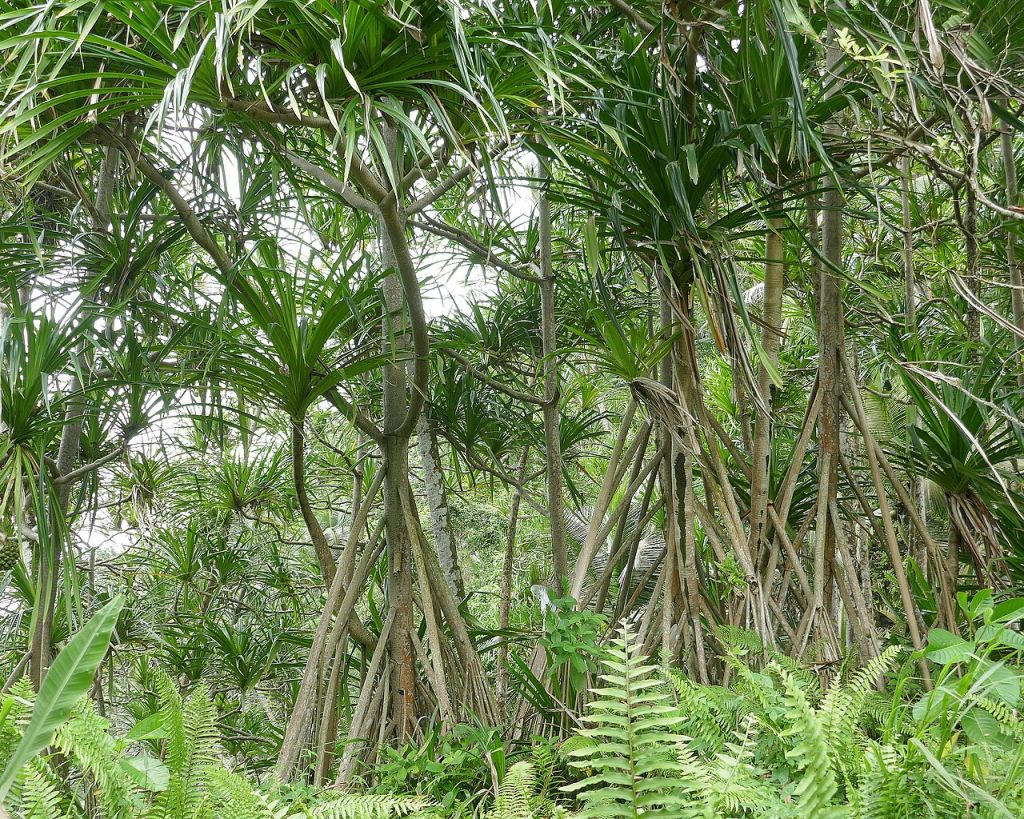Biocultural management of coastal Pandanus forests to mitigate the effects of climate change in Hawai‘i
PRINCIPAL INVESTIGATOR: Nina Rønsted
Co-INVESTIGATORS: Tim Gallaher, Tamara Ticktin, Kalikoaloha Martin
PI-CASC Graduate Scholar: Tehina Kahikina
Research Track: Island Resilience and Sustainability

Pandanus (screwpine or hala) forests historically covered large stretches of the Hawaiian coastline, protecting them from storm surge flooding and erosion. Simultaneously, these forests provided multiple ecosystem services, such as habitat for native coastal animals as well as human resources like food, medicine, timber, and leaves (lau hala). Pandanus tectorius is well-adapted to high salinity and the poor, rocky volcanic soils and slopes of Hawaiʻi, suggesting it may show high resilience to future climate change impacts including disturbed and shifting habitat, unpredictable weather, storms, and higher coastal soil salinity. However, much of the coastal forests once dominated by Pandanus tectorius have been partly cleared or mixed with invasive mangroves and other introduced coastal trees, fragmenting the original forests.
This project will develop a community-based biocultural management plan for coastal Pandanus forests in Hawai‘i that provides a robust framework of recommendations for a future coastal forest conservation and management strategy. The plan will combine locally derived traditional knowledge with new data about the genetic and ecological factors responsible for key adaptive traits under predicted climate change scenarios. The project is interdisciplinary, taking advantage of historical archives, collections, interviews, population genetics, environmental data, and distribution models.
Since the highly active Pandanus lau hala weavers’ groups have taken on the role of stewards of the remaining Pandanus forests in Hawaiʻi, all aspects of the project will be co-designed with them, as stewards of both the forests and the biocultural knowledge needed to manage them for future use. Researchers hope to provide the data needed to make recommendations for developing a community value-based conservation and management strategy for coastal Pandanus forests to mitigate the effects of climate change in Hawai‘i and protect coastlines, forests, and biocultural practices, while educating communities on the biocultural value of hala practices, the role of the forests in protecting coastlines, the threats to the forests, and the need and possibilities for protecting them.

